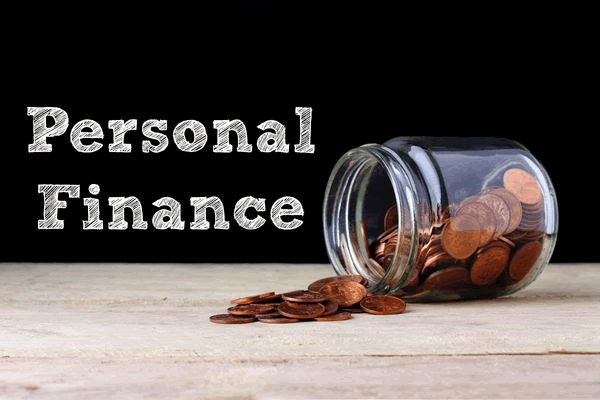Inflation is one of the most significant economic forces that can shape an individual’s financial outlook. For many, inflation means rising costs on everyday goods and services, but its impact goes beyond just the price of groceries or gas. Understanding how inflation affects personal finances and investment strategies is crucial for making informed decisions that can protect and grow wealth over time.
In this comprehensive guide, we’ll explore the relationship between inflation and personal finances, how it affects different aspects of financial planning, and most importantly, how it shapes investment strategies. Whether you’re planning for retirement, saving for a big purchase, or trying to optimize your current financial portfolio, understanding inflation’s role in shaping financial markets is vital.
The Basics of Inflation
Inflation refers to the rate at which the general level of prices for goods and services rises, eroding purchasing power. Over time, the cost of everyday items like food, housing, and healthcare increase, meaning the same amount of money buys fewer goods and services than before. This decrease in purchasing power can be particularly challenging for individuals who rely on fixed incomes, as their earnings may not keep up with the pace of inflation.
The inflation rate is typically measured by government agencies using indexes such as the Consumer Price Index (CPI). These indexes track the changes in the prices of a basket of common goods and services, providing a snapshot of how inflation is affecting the average person.
How Inflation Affects Personal Finances
Inflation can impact personal finances in numerous ways. Here are a few key areas where it plays a major role:
1. Erosion of Purchasing Power
The most obvious effect of inflation is the loss of purchasing power. As prices rise, the same amount of money buys less than it did before. For example, if inflation is 3% per year, then what costs $100 today will cost $103 next year. Over time, this incremental increase can result in significant financial strain, especially for those living on fixed incomes or with minimal wage increases.
2. Impact on Savings and Cash Reserves
Inflation can also have a profound impact on savings. If your savings are sitting in a low-interest savings account, their real value is being eroded over time. For instance, if you have $10,000 saved and inflation is running at 3% per year, the purchasing power of your savings will decrease by about $300 annually, assuming no interest or returns.
To mitigate this, it’s essential to keep your savings in accounts or investments that outpace inflation. Traditional savings accounts may not provide enough growth, so looking into options like high-yield savings accounts or inflation-protected securities is crucial.
3. Rising Costs of Borrowing
Inflation can also affect personal loans, mortgages, and credit card debt. Central banks often raise interest rates in response to high inflation to keep the economy from overheating. Higher interest rates mean that borrowing costs increase, making loans more expensive. For example, if you’re considering taking out a mortgage or car loan, you may face higher interest rates if inflation is on the rise.
In addition, for individuals who carry credit card debt, higher inflation may result in higher interest rates on existing balances, leading to more money spent on interest over time.
4. Effect on Retirement Planning
Inflation plays a critical role in retirement planning, as it erodes the value of retirement savings. For instance, if you’re planning to live on $50,000 per year in retirement, that amount may not have the same purchasing power 20 or 30 years down the road due to inflation. It’s essential to account for inflation when setting retirement goals and ensuring your savings grow enough to cover future costs.
Retirement funds like 401(k)s, IRAs, and other pension plans may not be sufficient on their own if inflation consistently outpaces the rate of return on investments. Therefore, finding ways to grow your retirement savings at a pace that outstrips inflation should be a top priority.
How Inflation Affects Investment Strategies
When it comes to investing, inflation is one of the primary factors that investors must consider in their strategies. While inflation can reduce the real value of returns, certain investments can help protect against inflation and potentially even take advantage of it. Let’s look at how different asset classes respond to inflation and what investors can do to adjust their portfolios accordingly.
1. Stocks and Equities
Stocks have historically been one of the best long-term investments to hedge against inflation. As the prices of goods and services rise, companies can often pass on these increased costs to consumers in the form of higher prices. This can result in higher revenues and, in turn, higher stock prices. Additionally, many companies increase dividends as a way to maintain investor interest, making stocks a potential source of inflation-protected income.
However, it’s important to note that stocks can be volatile, and inflation can also lead to higher interest rates, which can negatively impact stock prices. Growth stocks, in particular, may be more sensitive to rising inflation and interest rates than value stocks.
2. Bonds
Bonds can be more susceptible to inflation than stocks. When inflation rises, the fixed interest payments from bonds may become less attractive since they are paid in nominal terms. This results in a decrease in the real value of the bond’s coupon payments. Additionally, central banks often raise interest rates to combat inflation, which leads to a decrease in bond prices.
However, certain types of bonds can provide some protection against inflation, such as Treasury Inflation-Protected Securities (TIPS). These bonds are specifically designed to adjust with inflation, ensuring that their principal and interest payments increase with rising prices.
3. Real Estate
Real estate is another asset class that tends to perform well during periods of inflation. Property values and rents often rise in an inflationary environment, making real estate a potential hedge against inflation. Real estate investments, such as rental properties or Real Estate Investment Trusts (REITs), can offer a reliable stream of income that rises with inflation.
Moreover, owning property allows you to lock in a fixed mortgage payment, which means your real estate investment can become more valuable over time as inflation drives up rent prices and property values.
4. Commodities
Commodities, such as gold, oil, and agricultural products, are often considered one of the best hedges against inflation. When inflation rises, the prices of these commodities tend to increase as well. Gold, in particular, has long been viewed as a safe haven during times of inflation and economic uncertainty.
Investors may also consider commodity-focused exchange-traded funds (ETFs) or mutual funds as a way to gain exposure to this asset class without directly purchasing the physical commodities.
5. Cryptocurrency
In recent years, cryptocurrency has emerged as a potential hedge against inflation. Cryptocurrencies like Bitcoin are often touted as “digital gold” due to their limited supply and decentralized nature. Unlike fiat currencies, which can be printed at will by central banks, cryptocurrencies have a finite supply, which some believe makes them immune to inflationary pressures.
However, cryptocurrencies are still highly volatile and speculative, and their long-term ability to act as a hedge against inflation remains uncertain.
Adjusting Your Investment Strategy to Combat Inflation
To protect your personal finances and investment portfolio from the adverse effects of inflation, consider the following strategies:
1. Diversify Your Portfolio
Diversification is one of the most important strategies in protecting against inflation. By investing in a mix of asset classes, including stocks, bonds, real estate, commodities, and perhaps even cryptocurrencies, you can reduce the risk of any single investment being negatively affected by inflation.
2. Invest in Inflation-Protected Assets
Certain assets are specifically designed to help investors combat inflation. Treasury Inflation-Protected Securities (TIPS), real estate, and commodities are excellent choices for this purpose. These investments tend to rise in value during inflationary periods, providing some degree of protection for your portfolio.
3. Adjust Your Asset Allocation Over Time
As inflation impacts different sectors of the economy, it’s important to regularly review and adjust your asset allocation. For example, if inflation is rising, you may want to shift more of your portfolio into stocks, real estate, or commodities, which historically perform well in such environments. Conversely, during periods of low inflation, bonds may become more attractive.
4. Increase Contributions to Retirement Accounts
Since inflation erodes purchasing power, it’s important to ensure that your retirement savings grow at a rate that outpaces inflation. Consider increasing your contributions to retirement accounts like 401(k)s and IRAs, especially if your employer offers a matching contribution. Additionally, explore investment options within these accounts that offer inflation protection, such as TIPS or inflation-protected mutual funds.
Conclusion
Inflation is a force that cannot be ignored when managing personal finances and planning investment strategies. By understanding how inflation affects different aspects of your financial life, you can make more informed decisions to protect your wealth and optimize your portfolio for the future. Whether you’re saving for retirement, investing in real estate, or growing your stock portfolio, it’s essential to account for inflation’s impact on your financial plans.
By diversifying your investments, choosing inflation-resistant assets, and adjusting your financial strategies, you can better safeguard your finances against the erosion of purchasing power caused by inflation. With the right approach, inflation doesn’t have to be a threat—it can become an opportunity to grow your wealth and secure your financial future.

